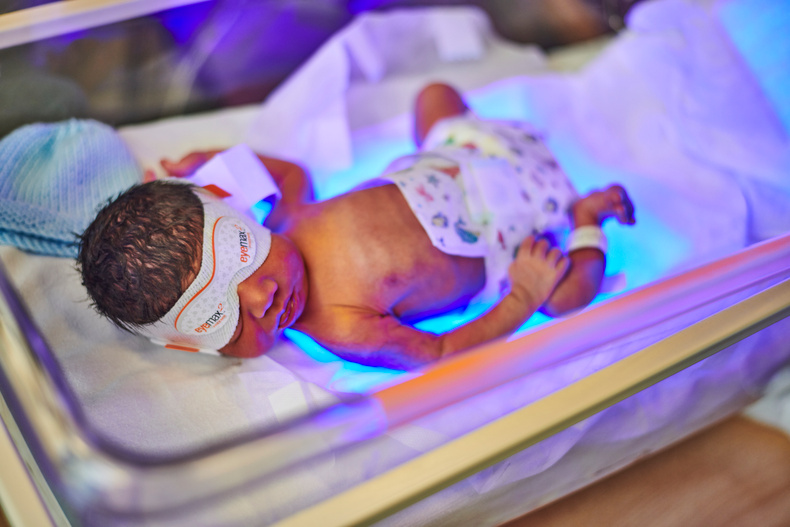Phototherapy blankets to reduce hospital stays for jaundiced pre-term babies

Birmingham Women 's Hospital is implementing portable phototherapy blankets into maternity care services to help reduce length of stays for pre-term babies across their neonatal units and keep families together.
Around 80 per cent of pre-term babies will go on to develop jaundice and is more likely to occur in pre-term babies rather than full term, resulting in extended hospital stays.
The 'biliblankets or bilicocoons ' act as a fast remedy to jaundice and due to their portability, allows for parents to bring their infants home, keeping families together and creating those important parent-baby bonds.
The phototherapy technology also makes it easier for new mums to breast feed their little ones, so that they can have the choice in their infant feeding journey.
The new blankets are also part of the National Avoiding Term Admissions into Neonatal Units (ATAIN) framework.
The blankets and cocoons are used by various teams across the neonatal services, including the Neonatal Community Outreach Team (NCOT), Neonatal Advice and Triage Services (NATS), our Transitional Care Team and our Neonatal Intensive Care Unit (NICU).
The full spectrum fibre-optic light blankets help to reduce bilirubin levels after one to two days of use and is discarded through stools and urination. Bilirubin is the yellowish pigment caused by the breakdown of red blood cells which causes discoloration in jaundiced infants.
Nicola Speakman, from Women 's Hospital NICU governance team and lead for ATAIN said: “Our biliblankets and cocoons are a big part of our ATAIN scheme, to keep our jaundiced babies on the road to recovery.
“We 're also looking at bringing our blankets outside of our clinical environments into our Transitional Care team like NATS, so that we can begin keeping our parents and babies at home to form those important bonds in their early infant development. It 's all about keeping our families together. ”
